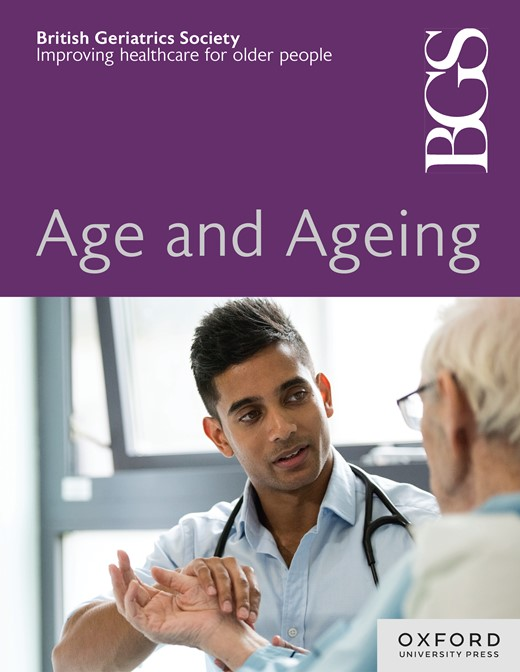改善老年痴呆症患者护理过渡期间药物管理的实用策略:来自一种新的利益相关者知情审查过程的发现
IF 7.1
2区 医学
Q1 GERIATRICS & GERONTOLOGY
引用次数: 0
摘要
背景和目的对于经历从医院到家庭健康(HH)过渡的老年痴呆症患者来说,药物管理(MM)可能具有挑战性。角色模糊——关于谁应该完成MM任务缺乏明确性——可能导致不良事件。我们使用了一种新颖的利益相关者知情的重新设计过程(干预改进小组;IRTs),要求家庭护理人员和HH专业人员:(i)确定医院到HH过渡期间与角色模糊相关的MM促进因素和障碍,以及(ii)制定和优先考虑改进策略。研究设计和方法我们进行了三次由家庭照顾者、HH员工和研究人员组成的IRT会议,以:(i)详细说明导致角色模糊的因素,(ii)集思广益减少角色模糊和支持MM的策略,以及(iii)根据有效性、可行性、可持续性和重要性对策略进行优先排序。结果IRT成员(n = 14)制定了31项策略。最重要的策略是:(i)建立卫生系统工作流程,收集准确的信息,以确保及时家访;(ii)安全地储存家庭药物,以减少不良事件的风险;(iii)出院后通知初级保健提供者,以确保及时随访;(iv)使用认知辅助工具进行药物储存和管理,以减少错误的风险;(v)为卫生保健人员提供针对痴呆症的培训。家庭照顾者和HH专业人员确定了侧重于解决流行病和痴呆症特定挑战、MM任务、澄清角色模糊以及护理过渡质量测量和反馈的策略。这些策略有可能改善老年人/照顾者在过渡期间的体验,并指导为最近住院的老年痴呆症患者提供服务的HH机构的改进工作。本文章由计算机程序翻译,如有差异,请以英文原文为准。
Practical strategies for improving medication management during care transitions for older adults with dementia: findings from a novel stakeholder-informed review process
Background and Objectives Medication management (MM) can be challenging for older adults with dementia experiencing hospital-to-home-health (HH) transitions. Role ambiguity—lack of clarity regarding who should complete MM tasks—can lead to adverse events. We used a novel stakeholder-informed redesign process (Intervention Refinement Teams; IRTs) to ask family caregivers and HH professionals to: (i) identify MM facilitators and barriers related to role ambiguity during hospital-to-HH transitions, and (ii) develop and prioritize strategies for improvement. Research Design and Methods We conducted three IRT meetings comprised of family caregivers, HH staff and researchers to: (i) detail contributing factors to role ambiguity, (ii) brainstorm strategies to reduce role ambiguity and support MM, and (iii) prioritize strategies by effectiveness, feasibility, sustainability and importance. Results IRT members (n = 14) developed 31 strategies. Top strategies were: (i) establish health system workflows for collection of accurate information to ensure timely home visits, (ii) store home medications securely to decrease risk of adverse events, (iii) notify primary care providers after hospital discharge to ensure timely follow-up, (iv) use cognitive aids for medication storage and administration to reduce risk of errors, and (v) provide dementia-specific training to HH staff. Discussion and Implications Family caregivers and HH professionals identified strategies focused on addressing pandemic- and dementia-specific challenges, MM tasks, clarification of role ambiguity, and care transition quality measurement and feedback. These strategies have potential to improve older adult/caregiver experience during transitions and guide improvement efforts for HH agencies serving recently hospitalized older adults with dementia.
求助全文
通过发布文献求助,成功后即可免费获取论文全文。
去求助
来源期刊

Age and ageing
医学-老年医学
CiteScore
9.20
自引率
6.00%
发文量
796
审稿时长
4-8 weeks
期刊介绍:
Age and Ageing is an international journal publishing refereed original articles and commissioned reviews on geriatric medicine and gerontology. Its range includes research on ageing and clinical, epidemiological, and psychological aspects of later life.
 求助内容:
求助内容: 应助结果提醒方式:
应助结果提醒方式:


